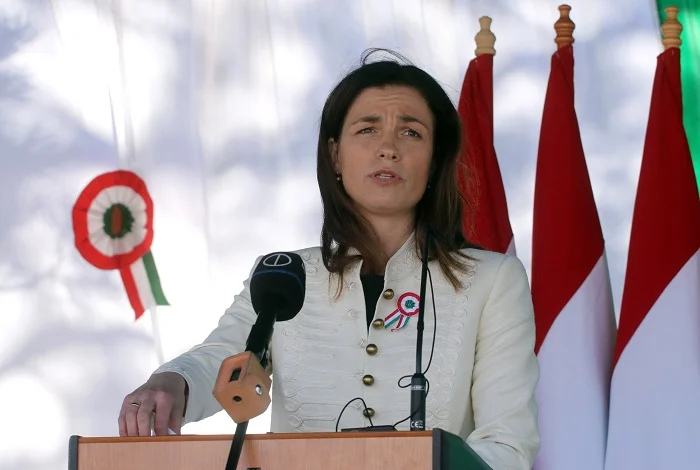Judit Varga also participated in the handing over of the Kápolna-Tenk connecting road in Heves county on Thursday. At the event, the Minister of Justice emphasized that Hungary can only be successful with a strong countryside, since the strength of the country lies in the countryside, as he said, this can even be considered a trademark of the national conservative government, especially considering the path that the Hungarian countryside has taken in history.
According to the head of the ministry, based on the communist ideology, the countryside had to be deprived of everything that expresses its uniqueness, culture and lifestyle. Thus, it lost its old luster, and mass nationalizations took away everything for which many parents and grandparents had "sweated blood". After the system change, the left-wing government did not favor the countryside either: although with other means, they began to deepen the gap between small towns and cities again, and with faulty policies and a series of austerity measures, they plunged the villages, towns, and the people living there into unprecedented poverty.
Finally, in 2010, the new, Christian, conservative, national cabinet together with the people ordered this failed series to stop by choosing cohesion instead of disunity, and instead of serving foreign big capital, it chose to enforce the interests of the Hungarian people
- announced the head of the ministry. He indicated: the government has set a goal to leave a country for the next generations, where the children and grandchildren of today's people can have a secure and predictable future.
However, words are not enough for this, actions are needed: measures that will put the countryside and its inhabitants on a stable footing in the long term.
Judit Varga emphasized. He explained: in the spirit of this, the government started national rural development and announced the easy-to-apply, fast-running, flexible "Hungarian village program", whose three-year total budget expenditure now exceeds HUF six hundred billion. He said that for the success of the program, it is enough to look around Tenken: playgrounds are beautified, schools and kindergartens are being renovated, while unprecedented road improvements are starting.
By renovating the Kápolna-Tenk connecting road number 3208, the government will pay off its old debt, said the minister, indicating that during the works, in addition to the road surface, the ditches, culverts and bus stops were repaired, and the KRESZ signs were replaced.
Thanks to the investment, the surrounding settlements, institutions, workplaces and relatives and friends can be reached more quickly and easily. However, the work cannot stop there, as there is still work to be done in the development of the road network
He added:
the campaign of the left is now about nothing but insulting people, including those living in the countryside, so on April 3, every voter will decide not only about his own future, but also about the fate of his settlement and the country.
Zsolt Szabó, the Fidesz-KDNP candidate for Heves County's electoral district No. 3, highlighted at the event: for the people, the modernization of the road network is always one of the most important aspects of development, which is in line with the government's goals. He said: more than seventy percent of the roads in the electoral district, which includes Tenke, have already been renovated. He stated: the "Hungarian village program", which provides enormous help in all of this, serves the people living in the countryside, their development, and making their settlements more homely and livable. The countryside is alive, active, getting younger and wants to develop - concluded the representative candidate.
Source: PestiSrácok
Featured image: MTI
Source: MTI; Photo: MTI/János Vajda













